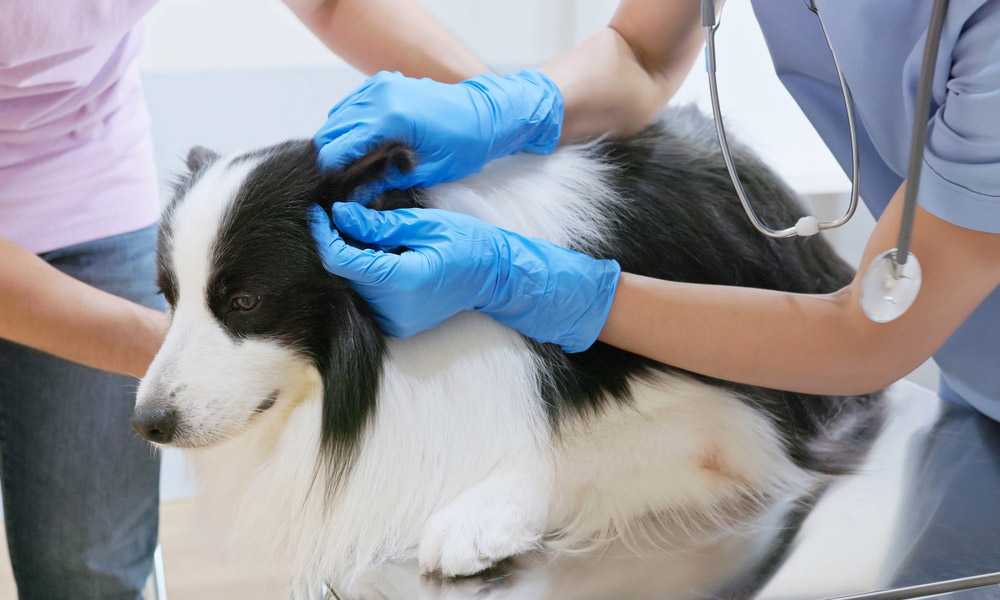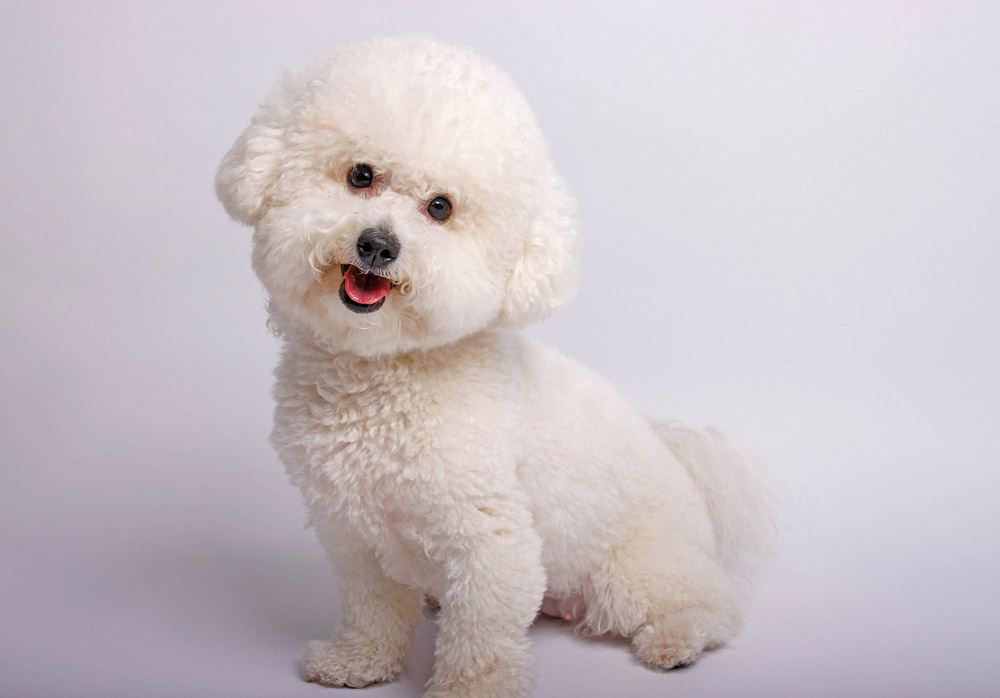Border Collies are considered the most intelligent dog breed in the world. Regarded as exceptional herders, they are highly intelligent, affectionate, loyal, and love to engage in family activities. However, they are not perfect and Border Collies are generally prone to anxiety. They are a high-energy breed and require lots of exercise, and if they do not receive adequate exercise, they can become destructive with increased anxiety issues.
Don’t let this fact discourage you if you’re contemplating adding one to your family, as they are an excellent dog breed to own. Let’s look further into this topic and find out how you can ease anxiety episodes along with other valuable information.
Why Are Border Collies Prone to Anxiety?
Border Collies are workaholics that thrive on herding livestock. They are happiest with a job to do, and if they get bored, they are prone to anxiety. It’s best to keep these dogs on a routine schedule regarding exercise, and if you know you’ll be away from the home for an extended period of time during the day or night, ensure you exercise your Border Collie beforehand to help ease the anxiety—that way, your Border Collie will be tired and likely rest while you’re gone.

How Do You Deal With an Anxious Border Collie?
Thankfully, there are numerous ways to deal with this potential problem, but first, let’s differentiate between separation anxiety and boredom. A bored Border Collie will display destructive behaviors such as digging and chewing. On the other hand, a Border Collie with anxiety may show many different signs.
- Vomiting
- Diarrhea
- Not eating or eating too much
- Barking
- Hyperactivity
- Fearfulness
- Clinginess
- Excessive drooling
- Going potty in the house
- Hiding
- Panting
- Pacing
So, how do you deal with this issue? First, keeping your Border Collie on a schedule and daily routine is crucial. They are creatures of habit and may display anxiety if there’s a change in the daily routine, such as a move or if you took on a new job. This issue can also arise if you are gone more than what your Border Collie is used to.
 Top 4 Tips for Dealing With Separation Anxiety
Top 4 Tips for Dealing With Separation Anxiety
1. Teach Tricks and Commands with Consistency
We know Border Collies are intelligent and capable of learning new tricks and obeying commands. They love to learn, and one way to help with separation anxiety is to enroll them in an obedience class. If you don’t have time for an obedience class, you can teach your Border Collie basic commands at home (and you should do this anyway). Border Collies can learn over 1,000 words, so they have no problem learning “sit,” “stay,” and “come.”
Be consistent with training, and ensure everyone in the household does the same. Always use positive reinforcement while training, and never yell at your Border Collie, as this will only make your Border Collie afraid of you. And absolutely, under no circumstances should you ever hit your dog. Actions of this nature will cause your Border Collie to not only be afraid of you but also may cause aggression toward you.
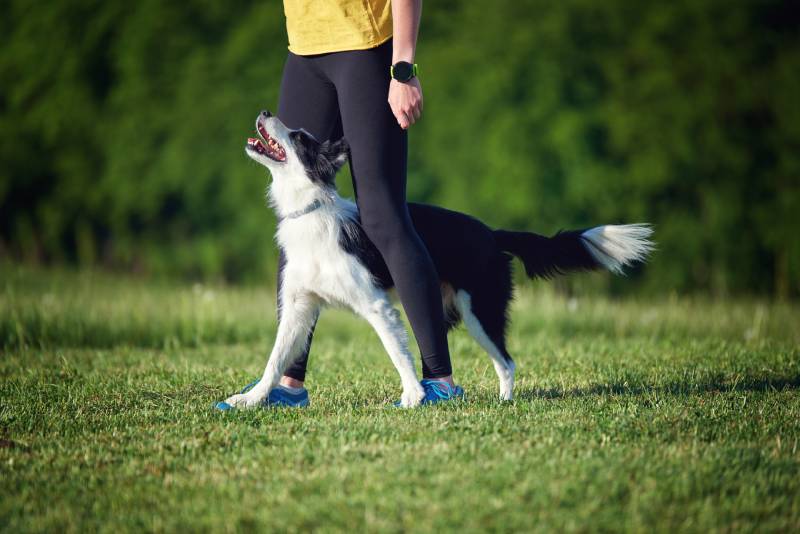
2. Leave Your Border Collie Alone in Increments
Another tip is getting your Border Collie used to being alone, but how do you go about this? One way is to place your Border Collie’s favorite toys in a room. Engage in a quick game of tug-of-war, then leave the room and shut the door. Only leave for a few minutes and return. Repeat these steps for a while, and increase the time you’re gone in increments. These repetitive steps will show your Border Collie that you will return.
You can also leave your house multiple times a day for short periods. Be consistent, and your Border Collie will pick up that you always return and that there is no need to worry.
3. Exercise, Exercise, and Exercise
Did we mention you should exercise your Border Collie? In all seriousness, Border Collies require an extensive amount of exercise, and a general rule of thumb is a tired Border Collie is a non-destructive and non-anxious Border Collie. Ensure you provide adequate exercise before leaving for extended periods, and make the time to devote to a regular schedule. If you work away from home, try getting up a little earlier to take your doggie on a walk or run. If that’s not feasible, make time in the evenings, but whatever you do, stick to a routine and schedule.
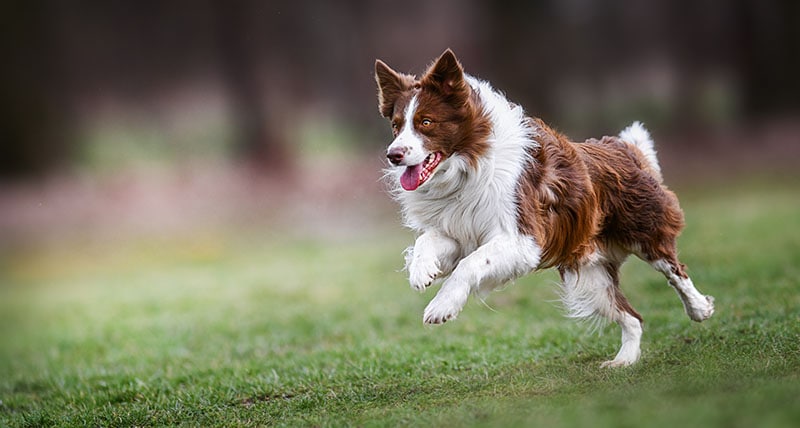
4. Speak to Your Veterinarian
When all else fails, rely on your veterinarian for suggestions and advice. Your vet may run tests to ensure no medical issues are causing the problem. If a medical issue is ruled out, your vet may prescribe an anti-anxiety medication.
Tips for Keeping Your Border Collie Healthy and Safe
In addition to exercising your Border Collie, here are a few tips that will help to keep your Border Collie healthy and safe.
- Maintain a healthy weight by feeding vet-approved portions at mealtimes.
- Feed a high-quality dog food with no added preservatives or fillers with a high-quality protein listed as the first ingredient.
- Take your Border Collie for regular checkups and keep all vaccines up-to-date.
- Give them a job to do. If you don’t have livestock for your dog to herd, try mental stimulation games that will exercise the mind.
- Exercise!
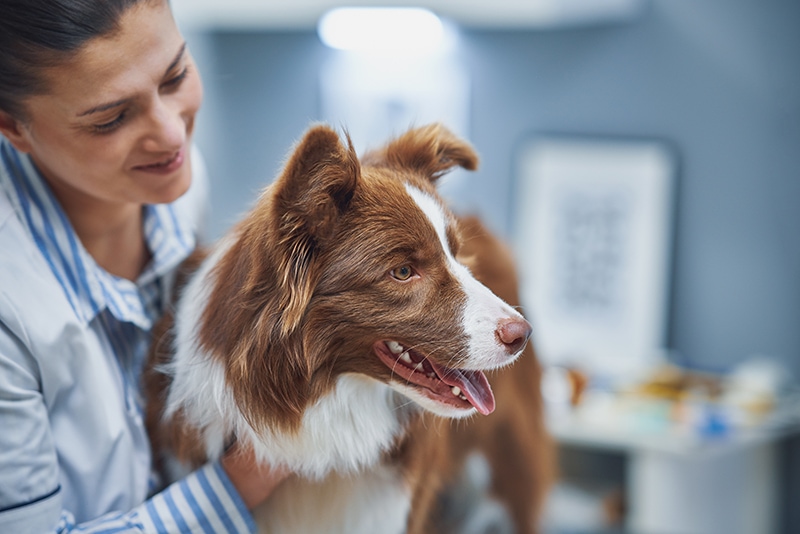
Conclusion
Border Collies make excellent family companions, but some can be prone to separation anxiety. Fortunately, you can take particular steps to help curb the disorder, and if you are not having success, enlist the help of your veterinarian. Not all Border Collies develop separation anxiety, but if yours happens to develop the issue, don’t despair!
Follow the tips mentioned in this post for ways to cope and remember to keep your Border Collie both physically and mentally stimulated.
Featured Image Credit: SakSa, Shutterstock
Contents
- Why Are Border Collies Prone to Anxiety?
- How Do You Deal With an Anxious Border Collie?
- Top 4 Tips for Dealing With Separation Anxiety
- 1. Teach Tricks and Commands with Consistency
- 2. Leave Your Border Collie Alone in Increments
- 3. Exercise, Exercise, and Exercise
- 4. Speak to Your Veterinarian
- Tips for Keeping Your Border Collie Healthy and Safe
- Conclusion








